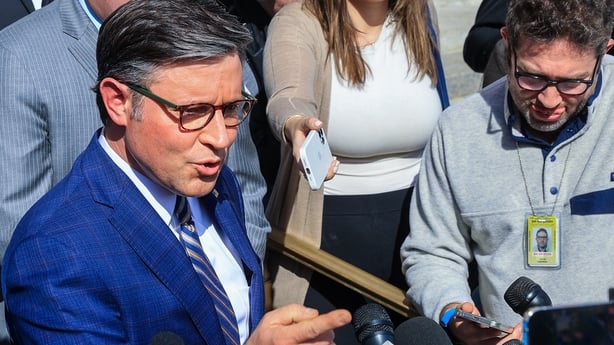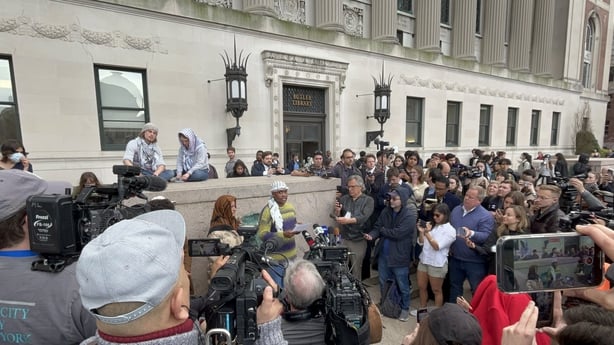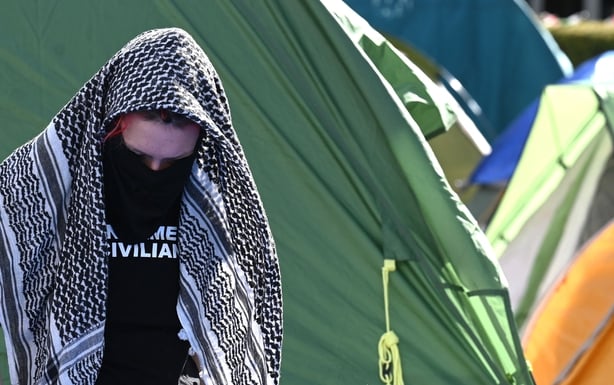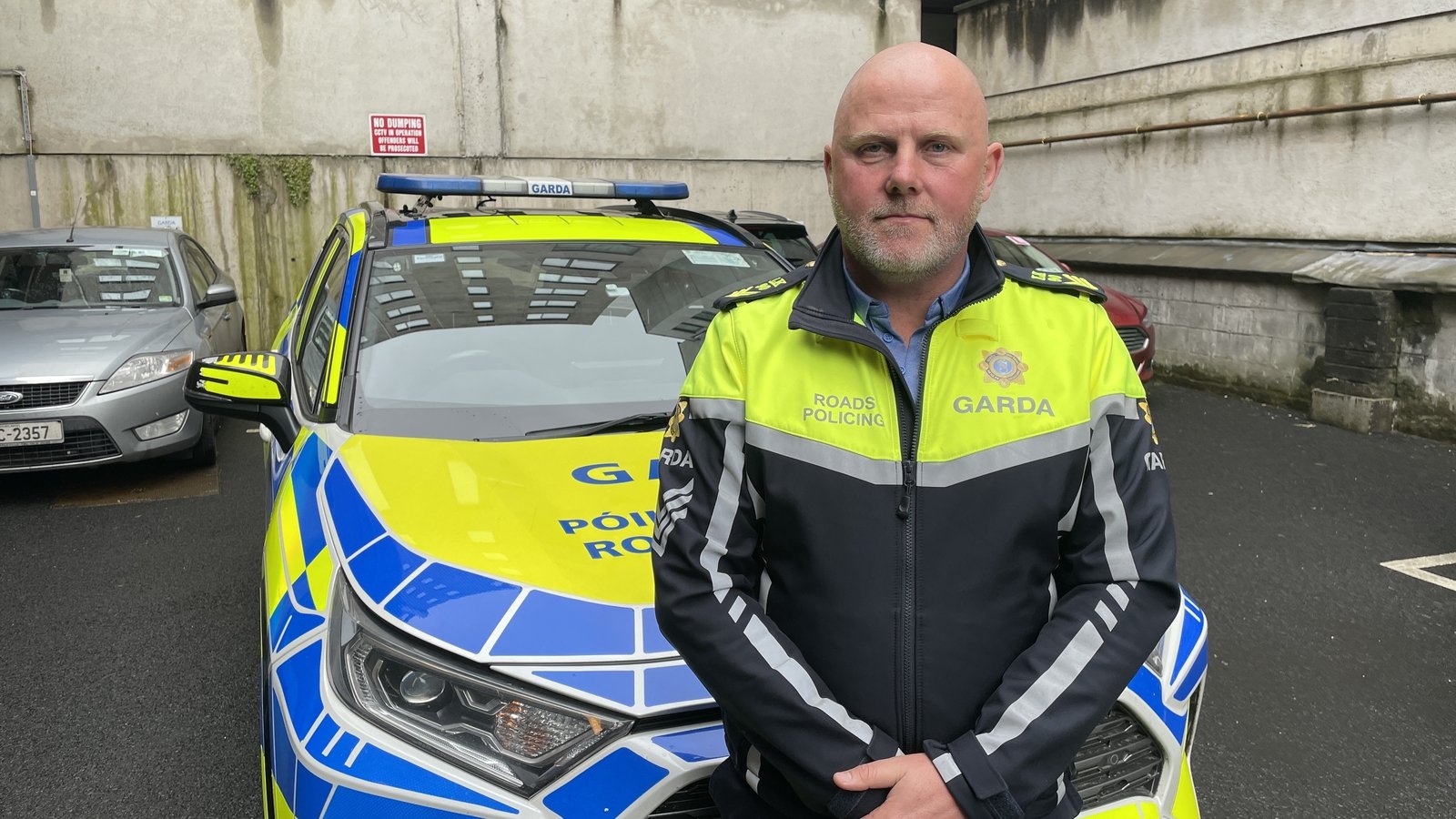A pro-Palestinian protest movement, sparked by a crackdown on an encampment at New York’s Columbia University, has spread across America’s college campuses.
More than 100 students were arrested when Columbia University President Minouche Shafik called in the police to clear the tents off the campus lawn last week.
But the move was unsuccessful, serving only to ignite similar protests across the country.
Since then, police have clashed with students at several universities from Southern California to Texas and made dozens of arrests.
Amid rising tension yesterday, the speaker of the US House of Representatives Mike Johnson paid a visit to Colombia University to meet Jewish students and faculty members. As he spoke on the steps of the colonnaded library, he was loudly booed and heckled by student protestors.
He said his message to the students was to “go back to class and stop the nonsense – stop wasting your parents’ money.”
“My intention is to call President Biden when we leave here and share with him what we have seen with our own two eyes and demand that he take action,” he said.

Invoking the prospect of calling in the military to break up the protests, Mr Johnson said “if these threats and intimidation are not stopped, there is an appropriate time for the National Guard.”
The protest camp at Columbia University is made up of around 60 tents, pitched around the edge of the West Lawn, which is surrounded by imposing neo-classical buildings.
On the encampment’s south end, students have set up a food distribution corner. And on the northern end, there’s an arts and crafts area where protestors can be seen making placards and painting slogans on banners. In another section, a pop-up library.
Many of the students inside the encampment wear facemasks and black and white keffiyeh head scarves. Some are working on laptops. Others lie on blankets in the sun.
Occasional chants of “free, free Palestine,” ripple through the encampment.
In an interview with RTÉ News, Khymani James, the press spokesperson for the Columbia University Apartheid Divest movement, said university management had attempted to “brutally shut down” the protest by calling in the New York Police Department last week but that the students were “committed to this movement” and “willing to do whatever it takes to thrive and to win”.
Mr James told RTÉ News that the students’ demands were that the university divest from companies or institutions that “benefit from the genocide in Gaza” and disclose existing investments.
“We’re asking also for amnesty for all students and faculty who have faced disciplinary action for pro-Palestinian demonstrations, as well as for any faculty that may have been fired,” he said.
The university management had issued a deadline of Tuesday night for the camp to be cleared but it was extended for 48 hours to allow time for negotiations.
Beyond the encampment, students offered a wide range of views on the protest movement which has put their campus on front pages across the world.
A senior student of economics and politics, who preferred not to be named, told RTÉ News that she did feel safe as a Jewish student on campus and that misinformation had been spread about the nature of the protests.
“It can be seen as targeted specifically against American Jews, but I don’t see that as what’s happening here,” she told RTÉ News.
“I think that what this demonstration is doing is putting the university in a tricky position where they are forced to make a decision,” she said.
“And that decision will either be against the students or against its Zionist owners,” she added.

But another Jewish student who gave her name only as Saar said that she had been afraid to come to campus recently.
“This was the first time in a few days that I came back to campus. I felt the need to be able to study properly – I have finals next week,” she told RTÉ News.
She said she had close family in Israel and friends who attended the Nova music festival which Hamas militants attacked on October 7th.
Saar told RTÉ News she had been upset while taking classes on campus to hear the protestors outside chanting what she called “messages of hatred.”
Khymani James insisted the protest movement did not tolerate “anti-Semitism, Islamophobia or any form of bigotry whatsoever”.
Ella Staveley, who is studying English Literature on a transfer programme from Trinity College Dublin said that that she found the situation “complicated” because she had “connections on both sides.”
She described the protests as “pretty peaceful so far.”

“I think they started off slightly more aggressive but now there have been certain accommodations and agreements made and the students have definitely been much more peaceful,” she told RTÉ News.
“There have been a lot of crazy people outside Columbia’s campus, acting in very scary and daunting ways,” she added.
Ms Staveley said that the United States did “not have a nice history” with the National Guard and student protests.
In 1970, four students were killed and nine wounded when members of the National Guard fired on anti-Vietnam war protestors at Kent State University in Ohio.
“These things are very sensitive, especially here in the US,” Ms Staveley told RTÉ News.
“They can escalate quite quickly, and be very, very dangerous,” she said.
Source link
 TG4 TV PC to TV
TG4 TV PC to TV
